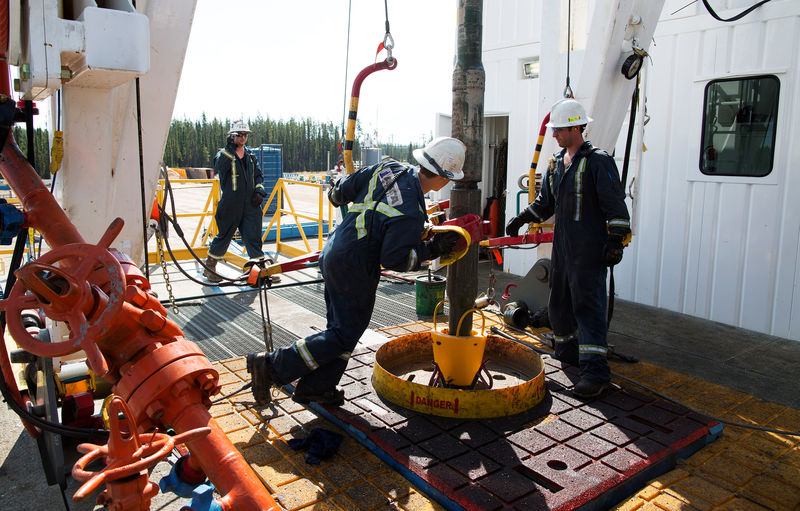By Barani Krishnan
Investing.com - Crude oil prices slid Thursday as the slow-grinding vote in the U.S. election and too-close-to-call races between President Donald Trump and his challenger Joe Biden led to caution in the commodity sector’s most politically-sensitive market.
New York-traded West Texas Intermediate, the leading indicator for U.S. crude, was down 31 cents, or 0.8%, at $38.84 per barrel by 1:40 PM ET (17:40 GMT). On Monday, WTI hit a mid-June low of under $33.64 per barrel on demand concerns, before rebounding.
London-traded Brent, the global benchmark for crude, slid 24 cents, or 0.6%, to $40.99 per barrel.
Crude prices snapped a three-day rebound as votes tallied from Tuesday’s U.S. election remained inconclusive on whether Trump gets to stay in office another four years or Biden will replace him.
A Trump victory could mean status quo for markets. But stocks on Wall Street have also rallied on speculation of a Biden win and freer trade policies espoused by his “blue party," although a split Congress/Senate the Democrat inherits could make the passing of any bill — including an urgently-required Covid-19 stimulus relief — difficult.
“With no ‘blue wave’ (victory), Biden will struggle to push through his clean energy initiatives, likely resorting to executive actions to push environmental goals,” Ed Moya, analyst at OANDA in New York, said.
“US production will not drop off significantly under Biden and that should somewhat have oversupply concerns linger until the northern hemisphere has the virus under control,” Moya added.
Democrats, who control Congress, reached agreement in March with the Trump administration and Senate Republicans to pass the Coronavirus Aid, Relief and Economic Security (CARES) stimulus. That package dispensed roughly $3 trillion as paycheck protection for workers, loans and grants for businesses and other personal aid for qualifying citizens and residents.
Since then, the two sides have been locked in a stalemate on a successive relief plan to CARES. The dispute has basically been over the size of the next stimulus as thousands of Americans, particularly those in the airlines sector, risked losing their jobs without further aid.
